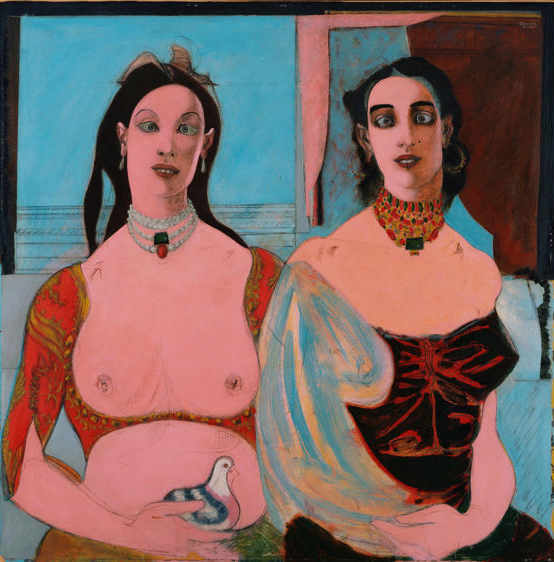
HER: A Twitter friend recently posted a comment she found in an online forum. The contributor basically said that lifestyle people are some of the most enjoyable people she has been around, but that, in the end, these people have only one thing on their minds. And because it’s all about the sex, it’s hard not to see the friendships as superficial. When I read this, my immediate reaction was are you kidding? As strange as it may sound, I think the lifestyle is just as much about friendship as it is about sex.
HIM: Okay, that needs some clarification.
HER: Well, the potential for sex is the thing that brings swingers together in the first place, but because the relationships are built on a foundation of shared openess and vulnerability, intimate subjects are not off limits the way they usually are. In meeting these people, you are already letting them in on a secret you keep from everyone else in your life: that you sleep with people outside your relationship. You start out in a place of honesty and trust that other couples might not get to in decades of friendship. So, when swingers have sex, it’s like a natural extension of an already intimate social connection.
HIM: I suppose that’s true. If you were to put an activity tracker on a swinger, you’d find that they spend way more of their lifestyle time socializing than having sex. To put it another way, I guess you’d say that sex is not the primary purpose of these relationships, but almost a byproduct. In a traditional connection between two couples (think about your parents and their best friends, for example) very strict boundaries govern the inevitability of attraction. Everyone knows that if you put four reasonably attractive 30 or 40-somethings together around a card table, or at a bowling alley, sparks are bound to fly. However, adultery has always been considered such a disaster that not only must desire be suppressed, but the very subject of sex must be avoided at all costs, except in a jokey or judgmental way. But let’s face it, adultery has always been about two very separate things: a sexual act, and then a whole constellation of negative consequences around that act. Swingers are people who have found a way to say ‘yes’ to the good parts of extra-marital attraction and ‘no’ to the bad.
HER: Which sounds easy when you say it that way, but it isn’t. It means unlearning so much of what we are socialized to believe about relationships. But the hard work is worth it because of the quality of the connections that result. The honesty that allows a man to admit his attraction to another man’s wife extends to every aspect of the relationship between the couples. There is simply less pretending all around, and more genuine connection.
For example, last week I put up a heartfelt post on my vanilla Facebook page about an important breakthrough in my life. It got lots of likes, but only four people chose to comment. I have lots of family and work acquaintances as friends on Facebook, but the four individuals who took the time to comment were all people I’ve seen naked. They were lifestyle friends.
HIM: I loved that when you pointed it out to me. It seemed to capture perfectly what you and I have been talking about lately. Now, I can imagine some people saying ‘well, leaving a comment on Facebook is not exactly the highest expression of a meaningful friendship,’ but we’ve experienced lots of instances of real world love and support from our lifestyle friends.
Last year I developed a herniated disk that caused incredible pain in my right leg. Anyone who’s experienced sciatica will know exactly what I’m talking about. During the worst of that ordeal we had arranged to meet a lifestyle couple for dinner. Since I hate to be a canceller, I loaded up on Advil and tried to be my cheeriest, most carefree self. It worked, for the most part, but when it was time to leave I grimaced in pain as I rose from my chair. The male half of the couple noticed and asked me what was wrong. I told him what I had been going through. Since he’s not only a swinger, but also a doctor, he took a quick look at my posture, asked about my pain, and even asked me to hop on my right foot and then my left in the middle of the restaurant. The next day he messaged me, saying he was concerned. Although he held a government post in public health, he told me he had earlier completed a residency in musculoskeletal medicine and that he thought he could help. Two nights later, he came to our home, which was an hour away, to put me through a complex examination. The next day, he emailed me a detailed report including recommendations for treatment. I gave the document to my doctor, who was frankly blown away by its rigor and insightfulness, and he followed the suggested course of action to the letter. Two weeks later my symptoms were almost completely gone.
HER: That story is probably the most dramatic example we have, but it’s not the only one. We’ve had lifestyle friends take our kids on fascinating tours of their work places, invite us to their family Thanksgiving dinner and vanilla birthday parties, and help us solve computer-related problems. But mainly they have helped us build a new community for ourselves after divorces cost us many of our old friendships.
HIM: Anyone who has been through a divorce knows that it can make people who were close to you as a couple feel like they have to choose sides, compounding the sense of loss. That was certainly the case for us. So when we got together, we had to build a new social circle from scratch.
HER: I was actually quite hopeful about our friendship potential together because my ex had social anxiety, so leaving the house was hard for him. But you’re different. Everyone loves you, and you brought along two new sources of potential friends: you volunteered at the local university and were also involved in the local art scene. These two spheres put us in contact with lots of interesting, open-minded people, and I assumed we would make lots of new friends. That assumption turned out to be true, for the most part, but it was slow going and the friendships rarely extended beyond pleasant acquaintances. Around that time, however, we also began experimenting with the lifestyle. Before long we noticed that we had begun to accumulate a large and growing group of friends without being intentional about it.
In fact, I would say our best friends now are two lovely people we met online, had sex with on the first date (and a few times beyond that), but are now just incredibly close to. Although the sexual chapter is over for now, the honesty and spiritual connection remains, stronger than ever. On the other end of that spectrum, we have friends we met five years ago at Hedo, who we clicked with socially right away. We were open to the possibility of playing with them, but the stars never seemed to align. That didn’t stop them from coming from out of town to stay at our place for the weekend more than once, all without the promise of sex. I did finally sleep with him a couple months ago, and it was fantastic, probably because I felt so comfortable with him. These two couples are the kind of people we love to surround ourselves with.
HIM: Readers who are considering trying non-monogamy for the first time may be wondering what kind of people they are likely to meet. They might understandably fear they’ll be surrounded by shallow, sex-obsessed party people. In other words, people who aren’t soulful or thoughtful or interesting. But we have written our online profile to try to pique the interest of smart, fascinating individuals, and we’ve met some wonderful couples along the way. Here’s just a sampling of the couples we’ve been with in the last three years:
- a TV producer and an art teacher
- two best selling authors
- a journalist/author and newscaster
- a sex therapist and a business owner
- a catastrophic injury lawyer and an online clothing entrepreneur
- two education professors
- a maker of prosthetic limbs and a social worker
- a touring musician and a french teacher
- a computer expert/photographer and a pole dancing studio owner
- a doctor and a holistic medicine practitioner
- an electrical engineer and an environmental engineer
- a different doctor and a different engineer
- a computer programmer and a porn star
HER: I look at that list and it seems like we’re bragging. You know, like the guy who has to tell everyone he meets that he went to high school with ___________ ___________ (insert famous name).
HIM: I never want to be that guy, although you know I actually DID go to high school with ___________ ___________ (famous name deleted).
HER: (rolls her eyes)
HIM: But I hear you. I actually decided a long time ago that the social currencies that mean the most to me are kindness and interestingness (I know, that’s not a word, but it should be). Of course I find success, good looks and prestigious titles appealing — that seems to be a human weakness — but I’ve met more than a few wealthy, attractive CEOs who have nothing meaningful to say, and who seem like thoroughly unpleasant human beings to boot. And now that I think about it, there are quite a few other couples who aren’t on the list because their jobs are more ordinary, or hard to describe, or because we’re not sure exactly what they do. Teachers, nurses, firemen, and police officers, they’ve all been smart, interesting, amazing people.
HER: Wow, when you outline it like that, it’s like we haven’t done anything besides fuck other people the last three years.
HIM: Whatever. As you know, I don’t care about numbers. (And we certainly haven’t ‘full-swapped’ with all of those people.) What I do care about is this: if we were to run into any of the people we’ve slept with while out with our kids, I’d want them to say, “Wow, Mom and Dad’s friends are cool.” I’d hate for them to say, “What in the world are Mom and Dad doing with those creeps/blowhards/sleazebags?”
HER: In that sense, I’m proud of our list. I feel that way about everyone we’ve had sex with. But seriously, let’s try to develop some other interests. You know, so people don’t start thinking we have only one thing on our minds.

Liam & Kate are a married couple, very much in love, writing honestly and insightfully about their adventures in the world of non-monogamy.
I love this. I don’t care what is in your pocketbook, what you drive or what you do for a living. I want to know what is between the ears. The sapiosexualality of it all. I believe the vulnerability and the communication in this lifestyle connects us to have the freedom to let our hair down. Thank you!